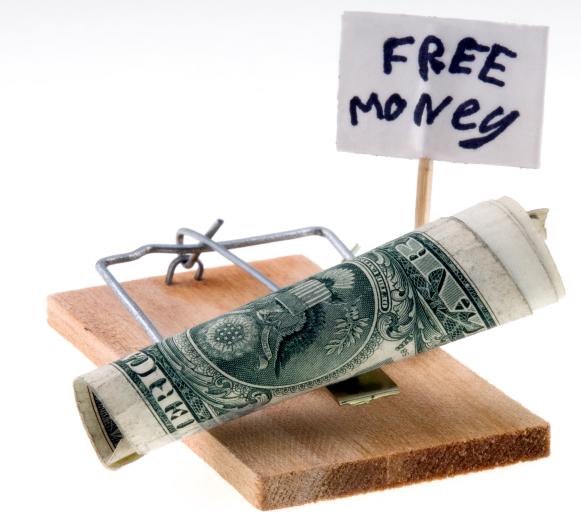
AUGUST 2013 Costco Connection
SCAM, CON and rip-off artists are always on the
lookout for their next target. It takes careful listening
and discernment to avoid common rip-offs.
■ Thoroughly read the terms and conditions
of any free offer before you agree to it.
■ Be wary of businesses that don’t have a street
address or direct phone number or operate out of a
P.O. box.
■ Watch for written correspondence that contains
spelling and grammatical mistakes or awkward
wording.
■ Look at an unknown individual’s email
address. If a “special offer” or “official correspondence”
comes from a free email account such as
Yahoo, Hotmail or Gmail, it’s probably a scam.
■ Make it a practice not to give out your
personal or banking information unless it’s to a
trusted source.
■ Stay away from pyramid schemes and multilevel
sales schemes.
■ Don’t agree to deposit a check that’s been
written for more than the purchase price and wire
money back to the issuer.
■ Only donate money to reputable charities. Be
aware that charity scams often follow disasters.
■ Don’t wire money to someone you don’t
know. Typically, money transfers cannot be traced
and transactions cannot be reversed.
■ One trick that rip-off artists use is to send an
email claiming to be a legitimate business and
direct you to a fake website where they request
personal information. Make it a practice not to
open links from unknown users on social media
sites or from unsolicited emails. Even though a
URL may look real, fraudsters can mask its true
destination. Type the URL into your Web browser
yourself to verify it’s real.
■ Don’t give money to someone whom you
only know from the Web.
■ Always keep in mind that legitimate entities
don’t ask you to provide or verify sensitive information
through non-secure means, such as email.
■ Don’t respond to requests for personal or
financial information via email, mail or phone. If
you have reason to believe that a legitimate business
actually does need personal information from you,
call the company using the number in your contacts,
not the one provided, as it may be fraudulent.
If a call, email or letter purports to be from a government
agency, find the agency’s phone number
from an official website and contact it.
■ Never deposit or transfer funds for someone
you don’t know and trust.
■ Be careful when signing non-disclosure or
non-circumvention agreements. Scam artists use
them to threaten victims with a lawsuit if they
report their experiences to law enforcement.
No comments:
Post a Comment